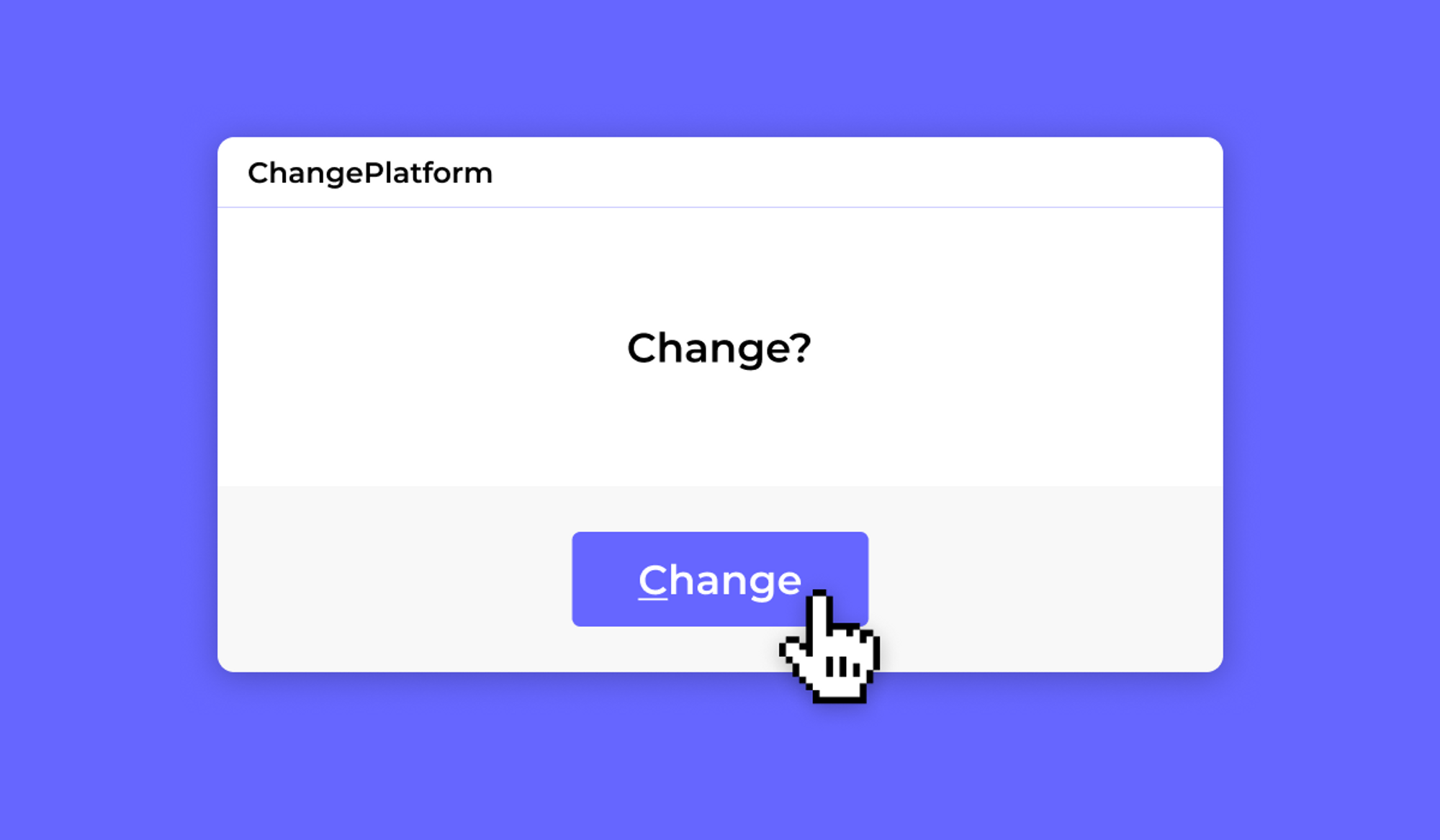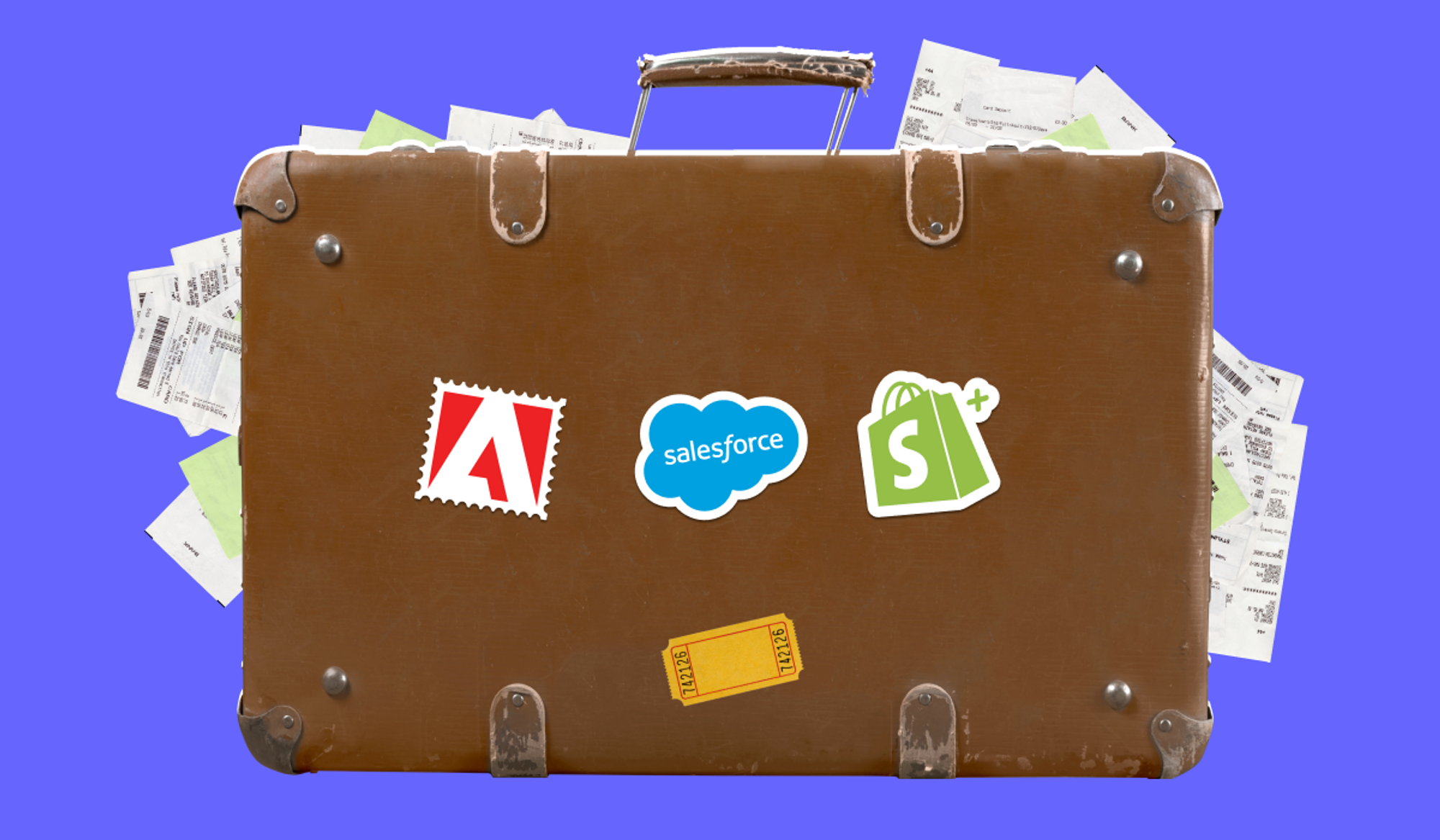Enterprise Ecommerce Replatforming in 2025: Is it the Right Time?

feWe all desire change sometimes, even if it's not worth it.
For ecommerce enterprises changing platforms is a monumental event – on par with switching jobs or employers for the average person. It's a big choice that may really change life, chances, and status.
Shifting platforms might be difficult, but it's frequently vital for company growth. There are many reasons to replatform your website, however, it's also worth evaluating your existing platform's options.
Choosing an ecommerce platform is difficult, especially for bigger companies with more resources and stakeholders. Enterprise ecommerce solutions are expensive and need a lot of time and resources to build, manage, and maintain, so it's important to investigate and assess choices.
So, is it worth it? Is 2023 the right time? What are the options at hand? Let’s find out.
Reasons for Leaving Off Your Current Platform

Consider this analogy: Just like buying a new car or new phone, “unboxing” a new ecommerce platform can feel enjoyable at first. However, over time, issues outside of your control may cause frustration and dampen your mood. Do you recognize these feelings when managing your current ecommerce platform? Let's unpack them a bit.
-
Are you experiencing difficulty managing growing inventory on your current platform? Perhaps your business requires more options, customization, and flexibility for your expanding product categories.
-
Do you face traffic issues due to high demand, but your existing platform is unable to handle it? If so, it's high time to look for an alternative.
-
Is your platform not designed for mobile users, causing inconveniences to shoppers trying to buy your products from their mobile gadgets? It's a fact that over half of online traffic comes from mobile devices, so this is a crucial factor to consider.
-
Have you encountered cybersecurity problems, making your customers sceptical about purchasing from your store? It's important to ensure the safety of your customer data, especially in today's hectic digital environment.
-
Do your shoppers experience barriers to purchasing while browsing your store, undermining their confidence in your service? Don't let a poorly designed platform impact your sales.
-
Are you struggling to implement new features, update your platform, integrate third-party services, and fix bugs?
If you are encountering these challenges, you might want to look for alternative ecommerce platforms that can more effectively meet the needs of your customers.
Before proceeding with ecommerce replatforming, it is important to review the pull factors and risks that should be considered.
Factors to Consider Before Replatforming
Rules of thumb: when migrating to a new platform, be wary of importing existing problems into the new environment.
1. Research and plan extensively: properly articulate all the issues to avoid ending up in a deja-vu nightmare.
2. Ensure that you are not replicating the same outdated thinking from your legacy system, as this can be a difficult trap to avoid.
3. Conduct a thorough audit of all your services and plugins to eliminate any unused or unneeded legacy tools.
4. Unscramble the budgeting for the project. Consider ecommerce platform pricing, licensing models, design, development, and integrations costs, etc.
5. Don't overlook major business requirements or technical integrations when planning for a platform migration.
6. When selecting the right team or agency to manage the migration process, ensure that everyone holds the same views on strategy and architecture design to avoid any disconnects.
7. Replatforming can be a time-consuming process, sometimes taking months. Never underestimate the timelines.
8. Functional testing is a crucial part of the replatforming process, and should not be skipped.
9. Prioritize security issues and ensure they're taken into account before the migration process begins to avoid compromising sensitive company data.
Best Practices for Migrating Ecommerce Enterprise Websites
-
Understand business drivers, objectives, and customer needs.
-
Take a mobile-first strategy. To ensure that your website reaches the maximum users, focus on creating a mobile-friendly experience first.
-
Identify your system integrations. Look for time-tested 3rd-party services that can help you with system integrations, such as payment processing, shipping, and customer service. This can save you time and money in the long run.
-
Plan for performance, scalability, and resilience. The feature-set of your ecommerce ecosystem is like the cogs of a well-oiled machine. When all the parts are working together smoothly and efficiently, it can help the machine reach its maximum potential and run more efficiently.
-
Prepare for your data conversion sufficiently in advance. That way you won't end up in a panic-conversion!
-
Select your experts and solution providers based on skills, experience, and culture. If you are looking to switch to a new ecommerce platform, it is important to find a reliable tech partner. They should have the know-how to handle the migration, as well as the customer focus to ensure the transition is as smooth as possible.
Where to migrate? Top 3 Enterprise Ecommerce Platforms

Competition in the enterprise ecommerce platform niche has heated up in the last half decade, with established names like Salesforce Commerce Cloud and Adobe Commerce (Magento) going head-to-head with upstarts like Shopify and Bigcommerce.
Let’s break down some of the most reputable and time-tested providers.
Best ecommerce platform for extensibility
Adobe Commerce / Magento
Models: Cloud, On-Premise, Open-source
Best for: B2B, B2C
Adobe Commerce / Magento is ideal for mid-market / large-enterprise online retailers who require a highly flexible and customizable environment.
It is a choice of businesses that require sophisticated features like advanced product and content management, pricing and promotions, order fulfillment, visual merchandising, and RMA.
The platform is undoubtedly the best pick in terms of extensibility: with hundreds of issue-focused plugins (extensions), making it a versatile platform for businesses with complex needs.
Pros
-
Adobe Commerce offers the most extensible ecosystem with a wide native feature-set right out of the box.
-
The platform has the largest developer community ready to assist and navigate when needed.
-
In comparison to other e-commerce systems, its support for multiple stores is remarkable.
-
For advanced B2B merchants that want to maintain business agility, Magento is one of the safest options.
-
Multiple options for headless and PWA development (PWA Studio framework)
-
Enterprise-level customers may take use of the platform's compatibility with Adobe's native products.
Cons
-
The platform needs extensive upkeep in terms of both time and money, which can be inconvenient for users.
-
The platform's “developer-first” nature may cause certain teams and enterprises to struggle with it. The changes need additional effort and skill from developers, and hence may be costly to maintain.
Best ecommerce platform for omnichannel CX
Salesforce Commerce Cloud
Models: SaaS, Subscriptions
Best for: B2B, B2C, D2C
Salesforce Commerce Cloud is ideal for medium and large-sized high-growth retailers who require a highly scalable enterprise-level ecommerce platform.
The platform is a good match for those with a customer-centric mindset: at your disposal a heavy toolbox full-packed with omni-channeling CX and next-gen personalization features.
Commerce Cloud offers advanced AI (Einstein) and machine learning capabilities to help online retailers make data-driven decisions and streamline the customer journey.
For those merchants who already inhabit the Salesforce, the ecosystem greenlights seamless connection with all their clouds and services.
Pros
-
A cloud-based fully-managed platform with minimal maintenance overhead.
-
Great multi-store and multi-brand support for a solid global presence.
-
B2B-friendly by design feature-set.
-
Einstein AI wired to all the Salesforce services skyrocket personalization and omni-channelling capabilities.
-
Great tools for headless builds; greater agility in development with SFRA and PWA kit.
Cons
-
In two words: high costs. Salesforce Commerce Cloud's enterprise-grade features come at a premium price and limit its adaptability in certain key areas.
-
With a smaller community, getting support or development work done fast can be difficult, and hiring an in-house development staff is much more difficult.
-
When compared to other systems, integration partners and consultants for SFCC are often more expensive.
-
Salesforce Commerce Cloud, as a SaaS solution, may limit site customization and development, and there are technological limits and permission levels that might delay down site modifications and releases.
Best ecommerce platform for agility
Shopify Plus
Model: SaaS
Best for: B2C, D2C
Shopify Plus is a fast-evolving enterprise-level ecommerce platform that is perfect for large and high-growth online retailers.
It is a low-maintenance SaaS platform well-known for its agility, low cost of ownership and ease-of-use.
Shopify Plus is popular for its scalability: the idea is your enterprise will expand in tandem with the ever-growing capacities of their ecommerce platform. Advertising itself as a "partner for life", which means you don’t have to go elsewhere for a more powerful solution to meet your expanding needs.
Pros
-
The key selling points of Shopify Plus are the platform's unparalleled flexibility and lower total cost of ownership.
-
Shopify's extensibility isn't as powerful as it is on other platforms, but it's simpler and less hazardous to work with.
-
The vast number of specialized vendors that develop apps for Shopify have helped propel the platform forward, allowing retailers to swiftly implement new and enhanced features.
-
Shopify's own functions, such Launchpad and POS, simplify the work of merchandising teams and cut down on retail overhead costs.
-
Advanced customer journey with Shopify Flow
Cons
-
Shopify has certain drawbacks, such as a deficiency in multi-store management tools and internationalization options like fixed pricing multi-currency.
-
Issues with configurable products management
-
Rigid checkout functionality
-
The limitations of Shopify Payments
-
Not friendly to wholesale / B2B
Other enterprise ecommerce platforms worth considering?
Clearly, as of 2023, the old divisions like Cloud vs On-Premise, headless vs traditional CMS seems to be somewhat irrelevant to the current state of affairs, as industry-defining players (previously mentioned Salesforce, Adobe, Shopify) offer a wide range of rather versatile hybrid models.
However, if you’re looking for a good pick at significantly lower costs, check Bigcommerce. It’s an open-SaaS platform with a focus on headless, dynamic, feature-rich out of the box, it is highly extensible with a host of APIs available.
If you want to go even further in decoupling the frontend and backend and gaining even more API control, there are emerging new players (offering really distinctive solutions) worth considering - Elastic Path, Commercetools, and Commerce Layer.
Bottom Line
So, once again, is it worth it? Is it the right time?
I'm afraid you'll have to put in a lot of effort with research, calculations, and consultations.
-
talk to all the enterprise stakeholders to discuss what adjustments will need to be made to adapt to the new platform.
-
consult with multiple solution providers to get a better estimation of the total cost of ownership and the necessary time, budget, and resources.
-
consult with tech experts to get insights on comparing the different platforms.
Like many other things in the industry, ecommerce website development is significantly impacted by global social and economic changes and is vulnerable to economic crises.
We aren’t fully aware of the potential impacts of the post-pandemic, war in Europe, energy crisis, inflation, layoffs in tech, etc - how exactly will this affect the ecommerce domain, for instance?
Someone will say it is bad timing for radical changes. The decision is up to you.
When deciding on the destiny of your ecommerce website in 2023, focus on your particular needs and goals, as this will help you tailor your approach.
The thing is that nowadays best-of-breed platforms have nearly everything to deliver you all the possible options for growth - another question, you might not know about all the features/ possibilities - and instead of migrating to other platforms you may want to have consultancy and hands-on solutions support from experts.
Grinteq will gladly address your challenge.